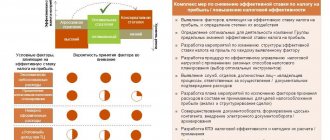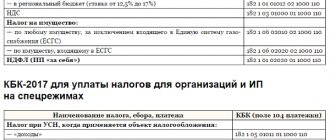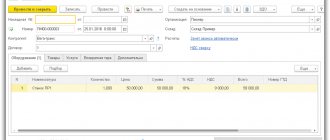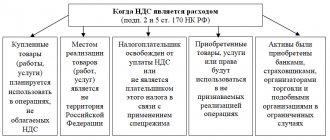Home Finance Taxes
Income tax is one of the main direct levies on enterprises, which is strictly tied to the financial performance of the organization. Considering that the profitable part is income after deducting expenses, this fee is directly related to the success and profitability of the company. There are benefits that exempt (or rather replace) the fee with other payments.
KBK - budget classification codes
The collection from the profit received can take the form of interest, as well as penalties and interest on this fee, and each such payment has its own BCC of income tax - a budget classification code that is extremely important not to be confused in order to pay the state exactly the amount that it requires .
Otherwise, you may face not only an incorrect payment, but also a loss of money, which will then be very difficult to get back from the budget.
KBK income tax 2020
In addition to direct tax payments, penalties and interest are associated with it. In order not to confuse all these types of tax payments, they are paid according to a completely different code, determined by the addresses of the recipient - different budgets.
Profit tax KBK - federal budget
KBK profit tax 2020, penalties and interest that the company pays to the federal budget:
- Tax collection: 18210101011011000110;
- Accrual of penalties from tax collection: 18210101011012000110;
- Penalties from tax collection: 18210101011013000110.
Profit tax KBK - regional budget
Codes of tax levies, KBK interest on profit tax, penalties that the enterprise pays to the regional budget:
- Tax collection: 18210101012021000110;
- Accrual of penalties from tax collection: 18210101012022000110;
- Penalties from tax collection: 18210101012023000110.
The BCC of the income tax on dividends also depends on the nature of the origin of this income.
What is KBK
In order to ensure compliance with the principle of a unified budget policy and bring indicators of budgets at all levels into comparability, the Ministry of Finance of the Russian Federation, by order No. 152n dated December 21, 2005, approved the procedure for applying the budget classification of the Russian Federation. In accordance with the document, budget revenues of individual subjects of the federation and the state as a whole are grouped by codes. And payers, in accordance with the Rules for indicating information when paying taxes, insurance premiums and fees dated November 12, 2013, when transferring money in a payment order, indicate these BCCs in column 104 of the “Recipient” section in the form of a 20-digit number.
The payment is credited by the bank to the budget revenue account whose BCC is registered. Notes, although they may contain textual explanations about the type of tax, are in the nature of additions. Banking institutions, in principle, are not entrusted with the function of checking the correctness of any details in payment documents. Therefore, if the type of payment from the “Note” column does not correspond to the specified code, the bank will be guided by the KBK.
Corporate income tax, KBK—choose and pay
Considering that the corporate income tax, which is so diverse and represents a direct fee, any form of legal entity is required to pay it. These are joint-stock companies, closed and open, LLC (including those with foreign registration), which do not even have their own representative office, but simply receive money from an object in Russia. They all have the same right to pay it or receive benefits.
Benefits in the form of replacing payments with another fee are provided when an organization exits the general tax system (GTS) and switches to simplified taxation (STS) or, if we are talking about agricultural enterprises, to a unified tax for agricultural enterprises (UST).
Taxpayers involved in the gambling business and those who have not received any income do not pay the fee, since then there is no object of taxation.
It is worth emphasizing that in the event of a transition to a simplified taxation system, the income tax of the simplified tax system is not abolished, the KBK of which concerns dividends, that is, proceeds from so-called “passive” income - dividends or debt obligations. The KBK profit tax fine has a different code - this is always important to remember. The most common mistake made by employees of enterprises and accountants is when paying fines to the KBK, they indicate not the penalties themselves, but the collection from profits, since fines are often paid in a hurry.
Budget classification code (BCC): table
Home / Other
The concept of budget classification code (BCC) was introduced by the Budget Code of the Russian Federation dated July 31, 1998 No. 145-FZ.
BCCs are special 20-digit digital codes that are used to group income, expenses and sources of financing of the state budget. Thus, these codes help to identify and organize the receipt and expenditure of funds.
Legal entities and individuals require these codes to fill out payment and reporting documentation when one of the parties to the relationship (recipient of payments, regulatory authority, etc.) is the state or one of its departments.
For example: BCC are indicated in some tax returns (for VAT, income tax, etc.), thus, Federal Tax Service inspectors record the debt on the taxpayer’s personal account.
Then the taxpayer indicates the BCC corresponding to a specific tax in the payment order (field 104 is reserved for the BCC) when actually transferring this tax to the budget. When this amount is credited to the subject’s personal account, the previously recorded debt is repaid.
In this case, it is allowed to indicate only one code in one payment order. If payments relate to different BCCs, the required number of payment orders is issued.
KBK table for 2020
KBK structure
In accordance with Order of the Ministry of Finance of the Russian Federation dated 07/01/2013 No. 65n (with amendments that came into force on 01/01/2018), the structure of the code using an illustrative example (KBK, corresponding to the personal income tax paid by the tax agent, is taken as an example) is as follows:
Where,
- The first 3 digits identify the revenue administrator. In the example given, code 182 corresponds to the Federal Tax Service.
- The next 3 digits establish the income group and subgroup. In our case: 101 – taxes on profits, income.
- Values from 7 to 20 digits inclusive are determined in strict accordance with Appendix 1.1 to the List approved by the above order.
In this case, the following groups of element values can be distinguished:
- signs 7-11 contain the code of the income item and subitem. In this situation, the value corresponds to the article “Tax and non-tax income” and the subarticle “Taxes on profit, income” - “Personal income tax, the source of which is the tax agent.”
- signs 12-13 indicate which budget the income should go to. In the example given: 01 – federal budget.
- Signs 14-17 are determined by the revenue administrator for the purpose of separate accounting of incoming mandatory payments, penalties, fines and interest. In our example: 1000 is a mandatory payment.
Note: currently the Federal Tax Service groups revenues into the following groups: 1000 – mandatory payments, 2100 – penalties, 2200 – interest, 3000 – fines.
- signs 18-20 indicate what type of financial transactions this income belongs to. In this case: 110 – tax revenues.
KBK codes are approved by orders of the Ministry of Finance of the Russian Federation. Changes are made quite often, so when making payments and preparing reports, it is recommended to check the available information with the latest KBK classifier and information posted on the official websites of government departments.
Errors in KBK
When transferring budget payments, you should be careful, since an error made when filling out the BCC can lead to a situation where the funds go to the wrong destination or remain “hanging” in the category of unknown.
If we are talking about taxes or contributions, the payment will need to be clarified by submitting the appropriate application. It should be noted that in accordance with the letter of the Ministry of Finance dated January 19, 2017 No. 03-02-07/1/2145, an error in the BCC does not prevent the determination of the type of payment, therefore the tax is considered paid.
Additional difficulties may arise if the BCC is incorrectly indicated when paying the state fee. In this case, the organization or individual will be denied the provision of relevant public services, and it will most likely not be possible to return or offset the amount of the fee transferred to the budget (subclauses 1-5, clause 1, article 333.40 of the Tax Code of the Russian Federation).
Did you like the article? Share on social media networks:
- Related Posts
- Individual entrepreneur reporting in 2020
- Liquidation of an LLC in 2020: step-by-step instructions
- Personal income tax for employees (income tax)
- Taxes and payments for individual entrepreneurs in 2020
- Tax holidays for individual entrepreneurs in 2020
- Insurance premiums for employees in 2020
- Fixed contributions for individual entrepreneurs in 2020
- LLC reporting in 2020
Leave a comment Cancel reply
Corporate income tax, KBK-calculation and rates
The KBK 2014 income tax and the procedure for calculating this year have been preserved. To calculate the fee, it is necessary to clearly define the income and expenses included in the reporting period, as well as the tax base that is subject to taxation. This tax base is multiplied by a certain tax rate. The budget classification code does not depend on the tax rate - there is a basic rate and special rates. Choosing the right tax rate is no less important than correctly determining the BCC. The basic rate is 20%, of which 2 percent goes to the federal budget, and 18 percent to the regional budgets.
Special income tax rates apply to special types of entrepreneurial activity that have their own specific characteristics.
Every year, tax officials propose changes to the system for calculating the tax levy on the profitable part. This year, as they say, “God has had mercy,” but last year was rich in innovations that are easy to understand, especially since the innovations concern a very narrow range of enterprises.
Firstly, owners of air and water transport can rejoice - the limits on accounting for food expenses have been removed. The depreciation procedure has changed - since 2014, property purchased with targeted funds can be subject to depreciation. Media and video files have been added to the list of intangible assets. Those who were obliged to pay advances at the beginning of the quarter are now not obliged to do so - theaters and museums are very happy.
The calculation of the tariff depends on the method of calculating the profit amount. The accrual method and the cash method differ in the time frames taken to determine the profit portion.
The transition to market relations has made profit tax the main tax in Russia. But constant experiments with taxation and a huge number of changes made by legislators on a regular basis often confuse entrepreneurs, forcing them to make mistakes. To avoid such errors, KBK - budget classification codes were introduced, designed to facilitate not only the accounting system on the part of the tax service, but also to simplify the life of enterprise accountants in navigating among the huge number of types of tax levies on profits and payments associated with them. The federal structure of Russia leaves its mark when, in addition to payments to the federal budget, regional characteristics are also taken into account separately. Thus, some regions (for example, the Murmansk region) have their own special tax rates and payment system, which only adds to the confusion. Many would like to see the future of the tax solely tied to regional budgets.
Penalties and fines for errors in details
What consequences await the taxpayer if he incorrectly indicated the BCC? According to paragraphs. 1 clause 3 art. 45 of the Tax Code of the Russian Federation, in order to fulfill the obligation to pay taxes, it is sufficient to simultaneously comply with two requirements:
- The bank received an order to transfer money to the budget to the appropriate account in the Treasury.
- There are enough funds in the account to pay the payment.
The Law does not put forward any other conditions, therefore an incorrect indication of the BCC is not a reason for recognizing the obligation to pay taxes and fees as unfulfilled. To offset the payment against another tax, you need to submit a corresponding application to the inspectorate at the place of registration. Specialists will check the information and transfer it to the front card. However, for the time preceding such transfer, tax authorities usually charge a penalty. They argue their position as follows: corrections are made to the personal account after the deadline for payment has expired, and until that moment the tax was not paid.
Thousands of taxpayers annually defend the illegality of charging penalties for such a violation. In order not to fall into their number, it is important for legal entities, individual entrepreneurs, notaries and even individuals to make sure, before sending a payment, not only that last year’s data has been correctly copied into the new payment slip, but also that the codes are up to date.










